Events
| Name | organizer | Where |
|---|---|---|
| MBCC “Doing Business with Mongolia seminar and Christmas Receptiom” Dec 10. 2025 London UK | MBCCI | London UK Goodman LLC |
NEWS
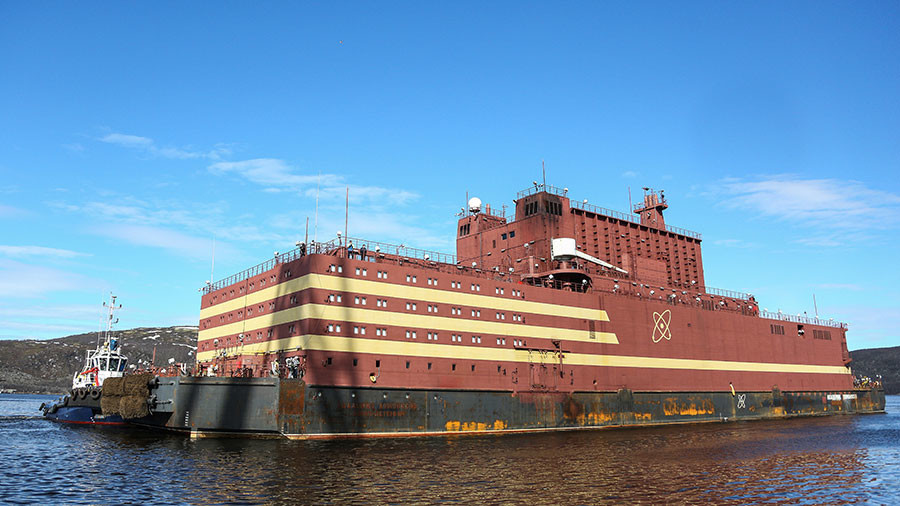
Russia’s floating nuclear power plant ready to heat up the Arctic www.rt.com
The world’s first floating nuclear power plant (NPP), built by Russia and called the ‘Akademik Lomonosov,’ has received a license for operation. It is to provide heat and energy to Russia’s remote regions in the Arctic.
According to Rosenergoatom, at the end of August the vessel will be towed to Pevek, a port city on the Arctic coast of the Chukotka region. It will thus become the northernmost operating nuclear plant in the world.
In December, the NPP will begin supplying energy to Pevek, which will allow the phasing out of two onshore power stations.
Chukotka is one of the most isolated regions in Russia, with most of its territory located beyond the Arctic Circle, where poor transport links and permafrost complicate large-scale construction.
The NPP is expected to become one of the key infrastructure elements in the development of Russia’s Northern Sea Route.
‘Akademic Lomonosov’ boasts two KLT-40S reactors, capable of producing up to 70 megawatts of electricity and 50 gigacalories an hour of heat energy. The reactors are a new modification of the KLT-40M units used by the Taymyr-class shallow-draft nuclear-powered icebreakers. A single unit can produce enough energy and heat to meet the demands of a city with a population of 100,000.
The power plant’s operational lifespan is 40 years, which can be extended to 50 years. Following the end of its life cycle, the unit can be taken away for reactor replacement and maintenance, without leaving any hazardous materials behind.
The NPP will become the first of a proposed fleet of floating nuclear power plants that can provide heat and energy to Russia’s remote regions, and assist in natural resource extraction. Russia also plans to lease the plants to other countries, where they will be used for electricity production and water desalination, as the facility could be converted into a desalination plant with production capacity of some 240,000 cubic meters of fresh water per day
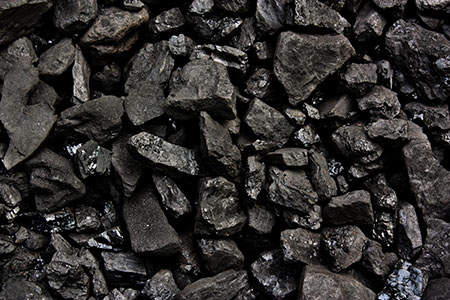
Mongolia may miss out on 2019 coal export target www.zgm.mn
China's coal import, which accounts for most of Mongolia’s coal exports and a substantial proportion of world coal consumption, increased 30 percent, reaching 29.6 million tons in the last five months, according to China’s General Administration of Customs. However, the country’s coking coal import has declined 2.4 percent to 5.92 million tons in May compared to the same period of the previous year.
As a result, Mongolia’s coal export to China dropped 8.9 percent to 3.68 million tons. Mongolia exported a total of 15 million tons of coal earning USD 1.2 billion in the first five months of 2019, which is only equal to 35 percent of 2019 export target of 42 million tons.
Australia’s coal export also slumped by 5.5 percent to 5.25 million tons, due to the relationship between the two countries. Australian coal exports have faced border crossing bans, after the country refused to use Huawei’s 5G service. Coking coal accounted for 26 percent or 1.38 million tons, which is the poorest performance since February 2019.
In the meantime, the coal export of Russia to China, the world's sixth largest coal producer ranked after China, the United States, India, Australia, and Indonesia, rose 64 percent to 3.93 million tons. 15 percent of it or 596,000 tons were coking coal. Indonesia also saw 46 percent of growth in its export selling 13.2 million tons of coal.
According to the Ministry of Mining and Heavy Industry (MMHI), the export of Gashuunsukhait port is in the range of previous years and coal export from Shiveekhuren port reached 50 percent of the estimated amount. As a result, Mongolia’s coal export remained 20-30 percent behind plan. In the second quarter of last year, the country lost its opportunity to export two million tons of coal, due to the C lisence at ports between China and Mongolia.
Experts predict China’s demand to stay at last year’s level. The second biggest economy of the world’s coal imports declined in the second half of the last two years, signalling concerns that Mongolia may fall short of its ambitious goal.

Infrastructure completed at Beijing's new Daxing airport www.chinadaily.com.cn
Building of the infrastructure for Beijing Daxing International Airport, which started in 2014, was completed on Sunday, marking the start of the preparatory stage of the airport's operation, according to the airport authorities.
The main construction projects, including airline bases, air traffic control tower, highway, intercity railway, high-speed subway line and other supporting facilities, were completed on schedule and passed inspection by the Civil Aviation Administration, the airport said in a news release.
Guo Yanchi, chief engineer in charge of the construction work, said the planning and design for the new airport was guided by its positioning as an international hub airport and the traffic it is expected to handle.
The terminal was designed to shorten the walking distance for passengers and provide as many aprons for aircraft as possible at the same time, Guo said, adding that it is only 600 meters, or less than an 8-minute walk, from the center of the terminal to the farthest boarding gate in each wing.
"It's more efficient for the passengers than any other large airport terminal of the same size in the world," he said. "The airport is also the world's first to be designed with double-deck departure and double-deck arrival platforms."
The airport has also adopted green and energy-saving concepts to incorporate natural light and seamless steel structure in its terminal design, Guo added.
To offer a more refreshing travel experience, five ancient-Chinese-style outdoor courtyards - with the themes "Silk Garden", "Tea Garden", "Porcelain Garden", "Countryside Garden" and "Chinese Garden" - feature at the end of the five departure lounges for use by passengers waiting for their flights, he said.
The airport is now organizing six large-scale simulation exercises for all departments stationed there to test its facilities and equipment. The exercises, running over more than two months, will see over 500 flights and handle 51,000 passengers and 35,000 items of luggage, according to the news release.
"The airport will also have to conduct several more test flights - for example, flying in low-visibility conditions - before being put into operation," Guo said.
The airport, which is planned to open before Sept 30, will act as a second international airport for Beijing to relieve pressure from rising demand for air travel on Beijing's Capital International Airport.
By 2021, the new airport is expected to handle 45 million passengers a year. By 2025, that number is expected to grow to 72 million.

‘Banished to Mongolia’? Bolton’s absence from Trump-Kim meeting fuels firing rumors... again www.rt.com
Hawkish national security adviser John Bolton was absent from President Trump’s team during his meeting with Kim Jong-un. However, non-interventionist Fox News host Tucker Carlson was present. Twitter put the pieces together.
As Trump’s most trusted adviser on all things geopolitical, one would expect John Bolton to have the president’s ear before, during, and after his historic foray across the Demilitarized Zone into North Korea and subsequent meeting with Kim Jong-un. However, Bolton was nowhere to be seen during Sunday’s impromptu summit, and was instead dispatched to Mongolia to talk security with Mongolian State Secretary Davaasuren Damdinsuren.
John Bolton
✔
@AmbJohnBolton
Delighted to be in Ulaanbaatar & looking forward to meeting with officials to find ways to harness Mongolia’s capabilities in support of our shared economic & security objectives. Thank you for the warm welcome Secretary of State @davaasuren_d
Notably present in Trump’s entourage, however, was Fox News host Tucker Carlson, an outspoken anti-interventionist and tireless critic of Bolton’s trigger-happy neoconservatism.
Though Bolton’s trip had apparently been scheduled before the meeting was cobbled together, Twitter was rife with speculation. “Hopefully Bolton’s banishing to Mongolia means that the chi is ready to flow again between Washington and Pyongyang,” wrote Korean peace activist Christine Ahn.
Christine Ahn
@christineahn
The inter-Korean peace process has stalled because of the breakdown in US-DPRK talks. Hopefully Bolton’s banishing to Mongolia means that the chi is ready to flow again between Washington and Pyongyang. https://twitter.com/willripleycnn/status/1145428684364369920 …
Will Ripley
✔
@willripleyCNN
South Koreans are cautiously optimistic about President Trump's historic day of impromptu diplomacy at the DMZ. They've seen this all before. Last year, their own President Moon made a historic walk across the MDL into North Korea, only to see diplomacy stall and tensions rise.
Hayes Brown
✔
@HayesBrown
I thought that was a metaphor when I first saw this tweet but nope John Bolton was literally in Mongolia https://twitter.com/lindseyhilsum/status/1145376951072370688 …
Lindsey Hilsum
✔
@lindseyhilsum
Banished to Mongolia? How @realDonaldTrump had to sidestep John Bolton to get his meeting with Kim Jong Un.
Bolton’s presence would likely have soured the amicable mood in Korea. Pyongyang has described the natsec adviser as “dim sighted,” “human scum” and a “bloodsucker.” Bolton has also been accused of torpedoing this year’s Hanoi summit between Trump and Kim, by suggesting beforehand that Korean denuclearization could follow the “Libya model” - a model that saw Libyan leader Muammar Gaddafi overthrown and murdered seven years after agreeing to denuclearize.
Rumors of Bolton’s impending sacking from the Trump administration began to circulate.
Derek J. Grossman
@DerekJGrossman
My read on this is Bolton will be out soon, Pompeo in as NSA and SecState—in true Kissingerian fashion. Bolton was literally removed from Trump’s Koreas visit & sent to Mongolia where he would do far less damage. https://twitter.com/ambjohnbolton/status/1145288948291440642 …
These speculations are not new, however, and the DC rumor mill has been buzzing with half-stories of Bolton’s looming departure for several weeks now. Former CIA agent and whistleblower John Kiriakou told RT two weeks ago that Bolton’s head is on the chopping block, as Trump apparently tires of his lobbying for war with Iran. However, Kiriakou noted that his leaving is “definitely not a done deal,” and still the stuff of gossip.
Kelly Magsamen
@kellymagsamen
I love Mongolia. I'm sorry that it had to receive John Bolton.
Despite the caveat, recent public statements by Trump lend credence to the rumors. “John Bolton is absolutely a hawk,” the president told reporters last week. “If it was up to him he'd take on the whole world at one time, okay?”
With military confrontation with Iran and Venezuela on the cards last month, Trump described himself as “the one who tempers him [Bolton], which is okay.” Days beforehand, Trump had expressed frustration that Bolton was trying to get him “into a war,” according to the Washington Post’s sources, at least.
Paul Carroll
@carrollpm
How many times can Trump call John Bolton “Mike” Bolton before he quits ?
And where does Tucker Carlson fit into all of this? The Fox Host interviewed Trump at the DMZ on Sunday, with the interview due to be broadcast on Monday. While grooming the Fox host to replace Bolton might be a bit of a reach, Carlson reportedly has Trump’s ear on key issues of national security, and according to one report has been privately advising the president not to go to war with Iran.
...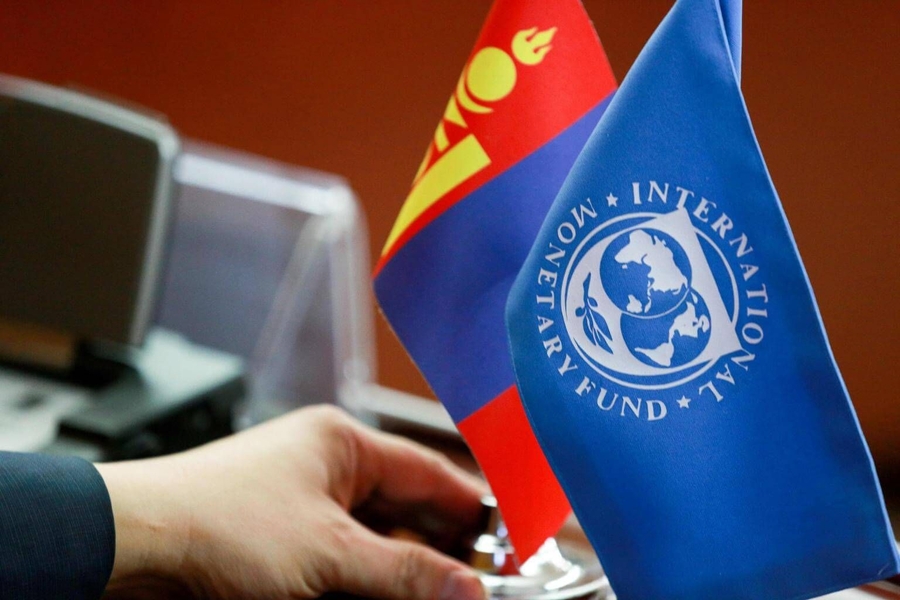
Mongolia sees sharp recovery in economy: IMF official www.xinhuanet.com
ULAN BATOR, June 30 (Xinhua) -- Mongolia's economy witnessed a sharp recovery in growth thanks to a combination of buoyant external conditions and the government's spending restraints, the International Monetary Fund (IMF) was quoted by the country's central bank as saying on Sunday.
The Mongolian economy is now much stronger and there has been a significant improvement in the economy, said Geoff Gottlieb, who led an IMF team to the Mongolian capital Ulan Bator on June 19-28.
"Mongolia's growth rate recovered sharply since 2016. The turnaround in real GDP growth was boosted by strong external demand for Mongolia's mineral exports, the resumption of the second phase of the Oyu Tolgoi copper mine and loosening monetary and credit conditions. In addition, the government's improving policy mix strengthened domestic confidence," Gottlieb said, noting that these factors have mainly contributed to the sharp economic recovery.
The Asian country's GDP expanded 8.6 percent year-on-year in the first quarter of 2019, amounting 3.5 trillion Mongolian tugriks (1.3 billion U.S. dollars).
The IMF predicted Mongolia's GDP will grow by at least 6.3 percent in 2019.
"Due to booming tax revenues and relatively contained expenditures, the fiscal balance has improved by 18 percentage points and public debt has fallen 13 percentage points to 75 percent of GDP. Externally, the Bank of Mongolia has used the strong turnaround in exports and FDI to increase net foreign exchange reserves by 3 billion U.S. dollars since end-2016," Gottlieb added.
However, the country's buffers are still insufficient to cope with the downside risks, the IMF team leader warned, urging the Mongolian authorities to continue advancing structural reforms necessary to extend the recent progress.
Back in 2016, the economy was in a desperate situation: GDP growth fell to below zero, foreign exchange reserves also decreased which were negative in net terms and below 1 billion U.S. dollars in gross terms, and public debt rose to almost 100 percent of GDP.
The IMF executive board approved a three-year bailout program for Mongolia in May 2017 to help the government's economic recovery plan that focuses on building foreign exchange reserves, driving debt onto a sustainable path, strengthening the banking sector, and securing stable and inclusive growth over the long run.
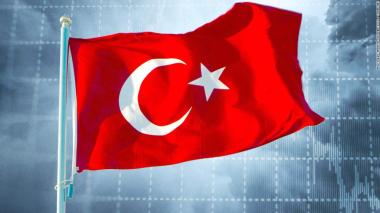
Turkish nationals in Mongolia seek UN protection against Turkey’s pressure www.turkishminute.com
Eight Turkish citizens who live in Mongolia have applied for asylum with the UN refugee agency (UNHCR) in order to avoid feared deportation to Turkey, the Medya Bold news website reported.
They have obtained asylum-seeker certificates that show that they are under UN protection until Dec. 31, 2019.
Yet they remain worried about their future as an alleged Turkish intelligence operation to take a school director back to Turkey in July 2018 was blocked by the Mongolian government at the last minute after it drew outrage from the public.
The group, consisting mainly of educators and their families, has been denied consular services; their passports have been cancelled; and their legal residence in Mongolia ends on June 30. They are not able to renew their residence permits as their passports were canceled.
İshak İlik, an English teacher who is part of the group, gave an interview to Medya Bold and talked about the difficulties they are faced with.
“Mongolia has a rule whereby one needs an ‘exit visa’ to leave the country. You cannot just buy a plane ticket and take off like elsewhere,” he said, adding that the cancelation of their passports also made them unable to apply for the exit visa.
He claimed that by denying them consular services and thus stranding them in the country with an unpredictable future, the Turkish government is trying to take revenge for last year’s thwarted attempt.
After a failed coup in July 2016, the Turkish government pinned the blame on the faith-based Gülen movement and launched an all-out crackdown targeting its real and alleged members in Turkey and abroad, including its network of schools.
Foreign-based educators and people from other walks of life were recently abducted by Turkish intelligence and taken to Turkey from countries like Malaysia, Kosovo and Kazakhstan.

Macau strikes judicial assistance deal with Mongolia www.macaudailytimes.com.mo
The government of the Macau Special Administrative Region signed an agreement on mutual assistance in matters of criminal law with Mongolia last week.
Jointly signed by Macau’s Secretary for Administration and Justice, Sonia Chan, and Minister of Justice and Internal Affairs of Mongolia, Tsendiin Nyamdorj, the agreement furthers cooperation in regards to the transfer of judicial documents, investigation findings and evidence.
It will also allow the two jurisdictions to cooperate over the search for and seizure of objects and documents, as well as the confiscation of the tools and proceeds of crime.
A delegation from the local government paid a five-day visit to Mongolia, from June 24 to 28. Its members met with the Ambassador of the People’s Republic of China to Mongolia, Xing Haiming, as well as with officials from the General Prosecutor’s Office of Mongolia.
While Macau officials were in Mongolia, the two sides held meetings to discuss further technical issues regarding an anticipated agreement on legal and judicial cooperation in civil and commercial matters. A draft version was signed following a consensus achieved as a result of the meetings.
Macau and Mongolia started to discuss mutual assistance in matters of criminal law in 2014, according to a statement issued yesterday by the SAR government. A draft agreement was signed in May 2017.
Under the Basic Law of Macau, with the assistance and authorization of the Central People’s Government in Beijing, the SAR may make appropriate arrangements with foreign states for reciprocal judicial assistance.

New Airport Management Project to be implemented by Mongolia-Japan joint companies www.montsame.mn
Ulaanbaatar /MONTSAME/ At its regular meeting on June 28, the Cabinet allowed to establish a concession agreement with Mongolia-Japan joint company under ‘invest-operate-transfer’ condition for Ulaanbaatar International New Airport Management Project.
The project will be carried out by ‘Airport at Khushgyn Valley’ state-owned profit oriented enterprise from Mongolian side and ‘Consortium SPV’ or ‘Japan Airport Management’ LLC from Japanese side.
Concession term is 15 years and owners of the concession plan to commence works ensuring their preparations with their funds within 10 months since the agreement has entered into force.
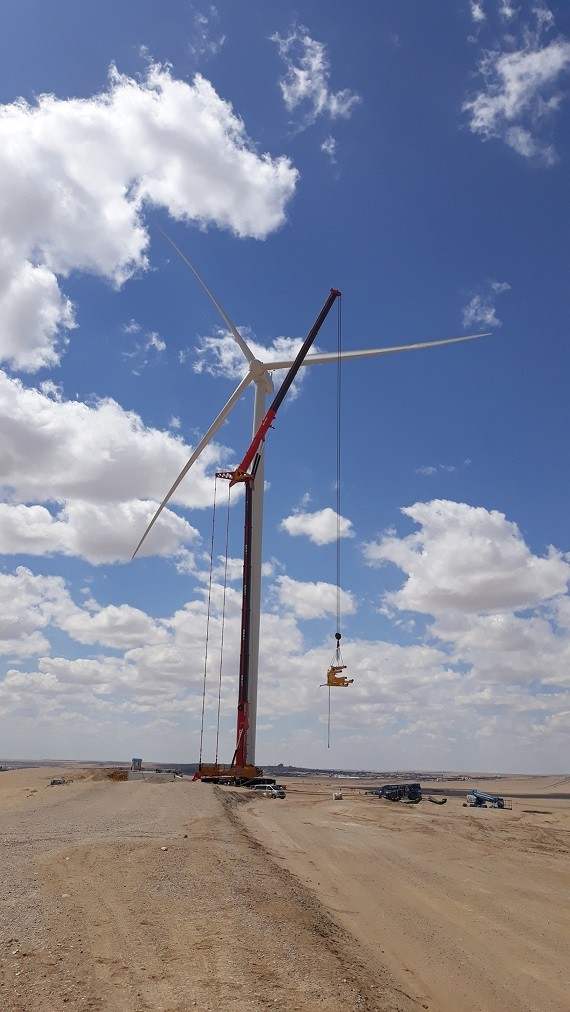
Massive FX leak: Renewable energy www.zgm.mn
Mongolia, which has a vast source of renewable energy, has not been able to export the electricity harvested from clean sources and instead, pay more to foreign investors. Key players in the industry, consisting mainly of foreign investors, sell their expensive power to Mongolia under the name “clean energy.”
The renewable energy law was passed over 10 years ago and has become obsolete. It was in a way, an easy means to profit off of Mongolia. Accordingly, the Mongolian Government has recently revised its policy. In the past few years, there was no renewal of licenses for wind and solar power plants.
Currently, there are eight solar and wind farms in Mongolia. However, as the number of new plants and clean energy increases, the people who charge the price are increasing as well. Mongolians paid MNT 110 billion for the use of green energy price differentials to new sources. Nevertheless, this money is mainly paid to foreign investors. “Excluding two plants, foreign investors currently hold more than 50 percent of six renewable energy sources,” said Tleikhan Almalik, head of the Energy Regulatory Commission.
Furthermore, over 1,000 companies operating in renewable energy have been established. Also, the license granted to this sector reached 1528.8 MWh, exceeding the total energy consumption of Mongolia.
In Mongolia, it is important to step up the renewable energy sector under a pure business principle. As of 2018, 18 percent of Mongolia's energy or 240.4 MWh consisted of renewable energy. By the end of this year, the country can achieve its purpose to get 20 percent of its total energy reserves from renewable sources. In this view, the country is likely to be dependent on wind and solar power in the coming years and it is essential to implement a cautious policy
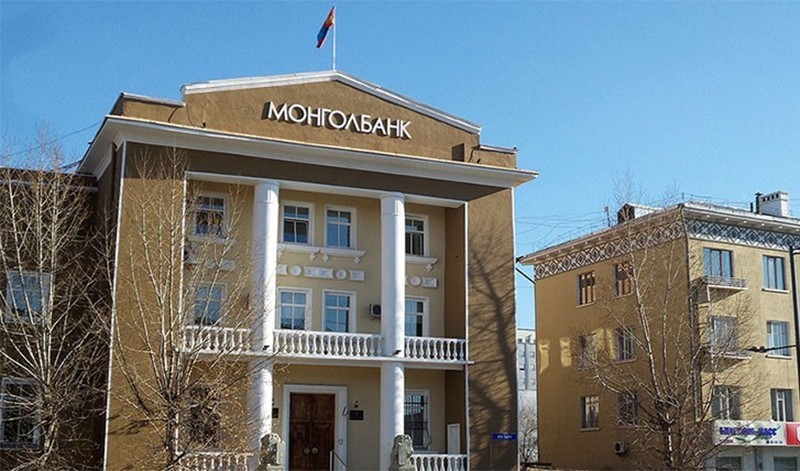
BoM: Inflation to be at 7.8 percent at the end of 2020 www.zgm.mn
Inflation is projected to be 7.2 percent at the end of 2019 and 7.8 percent at the end of 2020. In May, inflation stood at 7.9 percent nationwide at 8.8 percent in Ulaanbaatar.
The increased price of meat and fuel affected Ulaanbaatar inflation, accounting for 45 percent of inflation or four units of three kinds of products. As mentioned in the new inflation status report in June, several factors have hit the reduction of vision. For example, consumer loan lending has slowed down and the decrease in loan balance from the beginning of the year reduces the depreciation burden and increases the impact of wage growth-inflation.
Also, public investment expenditures have been delayed and the appreciation of the MNT has risen against the CNY. The increase in budget expenditures and its implications will further increase inflation in 2020. However, the effects of supply factors will slow and overall inflation is expected to be around the target level over the anticipated period.
If the budget outlook exceeds the expectation of the election year, there is a risk of inflationary pressures on demand. In addition, the trade war might trigger commodity prices to fall, boosting the burden of MNT, and increasing the price of imported goods, reported the BoM.
- «
- 1
- 2
- 3
- 4
- 5
- 6
- 7
- 8
- 9
- 10
- 11
- 12
- 13
- 14
- 15
- 16
- 17
- 18
- 19
- 20
- 21
- 22
- 23
- 24
- 25
- 26
- 27
- 28
- 29
- 30
- 31
- 32
- 33
- 34
- 35
- 36
- 37
- 38
- 39
- 40
- 41
- 42
- 43
- 44
- 45
- 46
- 47
- 48
- 49
- 50
- 51
- 52
- 53
- 54
- 55
- 56
- 57
- 58
- 59
- 60
- 61
- 62
- 63
- 64
- 65
- 66
- 67
- 68
- 69
- 70
- 71
- 72
- 73
- 74
- 75
- 76
- 77
- 78
- 79
- 80
- 81
- 82
- 83
- 84
- 85
- 86
- 87
- 88
- 89
- 90
- 91
- 92
- 93
- 94
- 95
- 96
- 97
- 98
- 99
- 100
- 101
- 102
- 103
- 104
- 105
- 106
- 107
- 108
- 109
- 110
- 111
- 112
- 113
- 114
- 115
- 116
- 117
- 118
- 119
- 120
- 121
- 122
- 123
- 124
- 125
- 126
- 127
- 128
- 129
- 130
- 131
- 132
- 133
- 134
- 135
- 136
- 137
- 138
- 139
- 140
- 141
- 142
- 143
- 144
- 145
- 146
- 147
- 148
- 149
- 150
- 151
- 152
- 153
- 154
- 155
- 156
- 157
- 158
- 159
- 160
- 161
- 162
- 163
- 164
- 165
- 166
- 167
- 168
- 169
- 170
- 171
- 172
- 173
- 174
- 175
- 176
- 177
- 178
- 179
- 180
- 181
- 182
- 183
- 184
- 185
- 186
- 187
- 188
- 189
- 190
- 191
- 192
- 193
- 194
- 195
- 196
- 197
- 198
- 199
- 200
- 201
- 202
- 203
- 204
- 205
- 206
- 207
- 208
- 209
- 210
- 211
- 212
- 213
- 214
- 215
- 216
- 217
- 218
- 219
- 220
- 221
- 222
- 223
- 224
- 225
- 226
- 227
- 228
- 229
- 230
- 231
- 232
- 233
- 234
- 235
- 236
- 237
- 238
- 239
- 240
- 241
- 242
- 243
- 244
- 245
- 246
- 247
- 248
- 249
- 250
- 251
- 252
- 253
- 254
- 255
- 256
- 257
- 258
- 259
- 260
- 261
- 262
- 263
- 264
- 265
- 266
- 267
- 268
- 269
- 270
- 271
- 272
- 273
- 274
- 275
- 276
- 277
- 278
- 279
- 280
- 281
- 282
- 283
- 284
- 285
- 286
- 287
- 288
- 289
- 290
- 291
- 292
- 293
- 294
- 295
- 296
- 297
- 298
- 299
- 300
- 301
- 302
- 303
- 304
- 305
- 306
- 307
- 308
- 309
- 310
- 311
- 312
- 313
- 314
- 315
- 316
- 317
- 318
- 319
- 320
- 321
- 322
- 323
- 324
- 325
- 326
- 327
- 328
- 329
- 330
- 331
- 332
- 333
- 334
- 335
- 336
- 337
- 338
- 339
- 340
- 341
- 342
- 343
- 344
- 345
- 346
- 347
- 348
- 349
- 350
- 351
- 352
- 353
- 354
- 355
- 356
- 357
- 358
- 359
- 360
- 361
- 362
- 363
- 364
- 365
- 366
- 367
- 368
- 369
- 370
- 371
- 372
- 373
- 374
- 375
- 376
- 377
- 378
- 379
- 380
- 381
- 382
- 383
- 384
- 385
- 386
- 387
- 388
- 389
- 390
- 391
- 392
- 393
- 394
- 395
- 396
- 397
- 398
- 399
- 400
- 401
- 402
- 403
- 404
- 405
- 406
- 407
- 408
- 409
- 410
- 411
- 412
- 413
- 414
- 415
- 416
- 417
- 418
- 419
- 420
- 421
- 422
- 423
- 424
- 425
- 426
- 427
- 428
- 429
- 430
- 431
- 432
- 433
- 434
- 435
- 436
- 437
- 438
- 439
- 440
- 441
- 442
- 443
- 444
- 445
- 446
- 447
- 448
- 449
- 450
- 451
- 452
- 453
- 454
- 455
- 456
- 457
- 458
- 459
- 460
- 461
- 462
- 463
- 464
- 465
- 466
- 467
- 468
- 469
- 470
- 471
- 472
- 473
- 474
- 475
- 476
- 477
- 478
- 479
- 480
- 481
- 482
- 483
- 484
- 485
- 486
- 487
- 488
- 489
- 490
- 491
- 492
- 493
- 494
- 495
- 496
- 497
- 498
- 499
- 500
- 501
- 502
- 503
- 504
- 505
- 506
- 507
- 508
- 509
- 510
- 511
- 512
- 513
- 514
- 515
- 516
- 517
- 518
- 519
- 520
- 521
- 522
- 523
- 524
- 525
- 526
- 527
- 528
- 529
- 530
- 531
- 532
- 533
- 534
- 535
- 536
- 537
- 538
- 539
- 540
- 541
- 542
- 543
- 544
- 545
- 546
- 547
- 548
- 549
- 550
- 551
- 552
- 553
- 554
- 555
- 556
- 557
- 558
- 559
- 560
- 561
- 562
- 563
- 564
- 565
- 566
- 567
- 568
- 569
- 570
- 571
- 572
- 573
- 574
- 575
- 576
- 577
- 578
- 579
- 580
- 581
- 582
- 583
- 584
- 585
- 586
- 587
- 588
- 589
- 590
- 591
- 592
- 593
- 594
- 595
- 596
- 597
- 598
- 599
- 600
- 601
- 602
- 603
- 604
- 605
- 606
- 607
- 608
- 609
- 610
- 611
- 612
- 613
- 614
- 615
- 616
- 617
- 618
- 619
- 620
- 621
- 622
- 623
- 624
- 625
- 626
- 627
- 628
- 629
- 630
- 631
- 632
- 633
- 634
- 635
- 636
- 637
- 638
- 639
- 640
- 641
- 642
- 643
- 644
- 645
- 646
- 647
- 648
- 649
- 650
- 651
- 652
- 653
- 654
- 655
- 656
- 657
- 658
- 659
- 660
- 661
- 662
- 663
- 664
- 665
- 666
- 667
- 668
- 669
- 670
- 671
- 672
- 673
- 674
- 675
- 676
- 677
- 678
- 679
- 680
- 681
- 682
- 683
- 684
- 685
- 686
- 687
- 688
- 689
- 690
- 691
- 692
- 693
- 694
- 695
- 696
- 697
- 698
- 699
- 700
- 701
- 702
- 703
- 704
- 705
- 706
- 707
- 708
- 709
- 710
- 711
- 712
- 713
- 714
- 715
- 716
- 717
- 718
- 719
- 720
- 721
- 722
- 723
- 724
- 725
- 726
- 727
- 728
- 729
- 730
- 731
- 732
- 733
- 734
- 735
- 736
- 737
- 738
- 739
- 740
- 741
- 742
- 743
- 744
- 745
- 746
- 747
- 748
- 749
- 750
- 751
- 752
- 753
- 754
- 755
- 756
- 757
- 758
- 759
- 760
- 761
- 762
- 763
- 764
- 765
- 766
- 767
- 768
- 769
- 770
- 771
- 772
- 773
- 774
- 775
- 776
- 777
- 778
- 779
- 780
- 781
- 782
- 783
- 784
- 785
- 786
- 787
- 788
- 789
- 790
- 791
- 792
- 793
- 794
- 795
- 796
- 797
- 798
- 799
- 800
- 801
- 802
- 803
- 804
- 805
- 806
- 807
- 808
- 809
- 810
- 811
- 812
- 813
- 814
- 815
- 816
- 817
- 818
- 819
- 820
- 821
- 822
- 823
- 824
- 825
- 826
- 827
- 828
- 829
- 830
- 831
- 832
- 833
- 834
- 835
- 836
- 837
- 838
- 839
- 840
- 841
- 842
- 843
- 844
- 845
- 846
- 847
- 848
- 849
- 850
- 851
- 852
- 853
- 854
- 855
- 856
- 857
- 858
- 859
- 860
- 861
- 862
- 863
- 864
- 865
- 866
- 867
- 868
- 869
- 870
- 871
- 872
- 873
- 874
- 875
- 876
- 877
- 878
- 879
- 880
- 881
- 882
- 883
- 884
- 885
- 886
- 887
- 888
- 889
- 890
- 891
- 892
- 893
- 894
- 895
- 896
- 897
- 898
- 899
- 900
- 901
- 902
- 903
- 904
- 905
- 906
- 907
- 908
- 909
- 910
- 911
- 912
- 913
- 914
- 915
- 916
- 917
- 918
- 919
- 920
- 921
- 922
- 923
- 924
- 925
- 926
- 927
- 928
- 929
- 930
- 931
- 932
- 933
- 934
- 935
- 936
- 937
- 938
- 939
- 940
- 941
- 942
- 943
- 944
- 945
- 946
- 947
- 948
- 949
- 950
- 951
- 952
- 953
- 954
- 955
- 956
- 957
- 958
- 959
- 960
- 961
- 962
- 963
- 964
- 965
- 966
- 967
- 968
- 969
- 970
- 971
- 972
- 973
- 974
- 975
- 976
- 977
- 978
- 979
- 980
- 981
- 982
- 983
- 984
- 985
- 986
- 987
- 988
- 989
- 990
- 991
- 992
- 993
- 994
- 995
- 996
- 997
- 998
- 999
- 1000
- 1001
- 1002
- 1003
- 1004
- 1005
- 1006
- 1007
- 1008
- 1009
- 1010
- 1011
- 1012
- 1013
- 1014
- 1015
- 1016
- 1017
- 1018
- 1019
- 1020
- 1021
- 1022
- 1023
- 1024
- 1025
- 1026
- 1027
- 1028
- 1029
- 1030
- 1031
- 1032
- 1033
- 1034
- 1035
- 1036
- 1037
- 1038
- 1039
- 1040
- 1041
- 1042
- 1043
- 1044
- 1045
- 1046
- 1047
- 1048
- 1049
- 1050
- 1051
- 1052
- 1053
- 1054
- 1055
- 1056
- 1057
- 1058
- 1059
- 1060
- 1061
- 1062
- 1063
- 1064
- 1065
- 1066
- 1067
- 1068
- 1069
- 1070
- 1071
- 1072
- 1073
- 1074
- 1075
- 1076
- 1077
- 1078
- 1079
- 1080
- 1081
- 1082
- 1083
- 1084
- 1085
- 1086
- 1087
- 1088
- 1089
- 1090
- 1091
- 1092
- 1093
- 1094
- 1095
- 1096
- 1097
- 1098
- 1099
- 1100
- 1101
- 1102
- 1103
- 1104
- 1105
- 1106
- 1107
- 1108
- 1109
- 1110
- 1111
- 1112
- 1113
- 1114
- 1115
- 1116
- 1117
- 1118
- 1119
- 1120
- 1121
- 1122
- 1123
- 1124
- 1125
- 1126
- 1127
- 1128
- 1129
- 1130
- 1131
- 1132
- 1133
- 1134
- 1135
- 1136
- 1137
- 1138
- 1139
- 1140
- 1141
- 1142
- 1143
- 1144
- 1145
- 1146
- 1147
- 1148
- 1149
- 1150
- 1151
- 1152
- 1153
- 1154
- 1155
- 1156
- 1157
- 1158
- 1159
- 1160
- 1161
- 1162
- 1163
- 1164
- 1165
- 1166
- 1167
- 1168
- 1169
- 1170
- 1171
- 1172
- 1173
- 1174
- 1175
- 1176
- 1177
- 1178
- 1179
- 1180
- 1181
- 1182
- 1183
- 1184
- 1185
- 1186
- 1187
- 1188
- 1189
- 1190
- 1191
- 1192
- 1193
- 1194
- 1195
- 1196
- 1197
- 1198
- 1199
- 1200
- 1201
- 1202
- 1203
- 1204
- 1205
- 1206
- 1207
- 1208
- 1209
- 1210
- 1211
- 1212
- 1213
- 1214
- 1215
- 1216
- 1217
- 1218
- 1219
- 1220
- 1221
- 1222
- 1223
- 1224
- 1225
- 1226
- 1227
- 1228
- 1229
- 1230
- 1231
- 1232
- 1233
- 1234
- 1235
- 1236
- 1237
- 1238
- 1239
- 1240
- 1241
- 1242
- 1243
- 1244
- 1245
- 1246
- 1247
- 1248
- 1249
- 1250
- 1251
- 1252
- 1253
- 1254
- 1255
- 1256
- 1257
- 1258
- 1259
- 1260
- 1261
- 1262
- 1263
- 1264
- 1265
- 1266
- 1267
- 1268
- 1269
- 1270
- 1271
- 1272
- 1273
- 1274
- 1275
- 1276
- 1277
- 1278
- 1279
- 1280
- 1281
- 1282
- 1283
- 1284
- 1285
- 1286
- 1287
- 1288
- 1289
- 1290
- 1291
- 1292
- 1293
- 1294
- 1295
- 1296
- 1297
- 1298
- 1299
- 1300
- 1301
- 1302
- 1303
- 1304
- 1305
- 1306
- 1307
- 1308
- 1309
- 1310
- 1311
- 1312
- 1313
- 1314
- 1315
- 1316
- 1317
- 1318
- 1319
- 1320
- 1321
- 1322
- 1323
- 1324
- 1325
- 1326
- 1327
- 1328
- 1329
- 1330
- 1331
- 1332
- 1333
- 1334
- 1335
- 1336
- 1337
- 1338
- 1339
- 1340
- 1341
- 1342
- 1343
- 1344
- 1345
- 1346
- 1347
- 1348
- 1349
- 1350
- 1351
- 1352
- 1353
- 1354
- 1355
- 1356
- 1357
- 1358
- 1359
- 1360
- 1361
- 1362
- 1363
- 1364
- 1365
- 1366
- 1367
- 1368
- 1369
- 1370
- 1371
- 1372
- 1373
- 1374
- 1375
- 1376
- 1377
- 1378
- 1379
- 1380
- 1381
- 1382
- 1383
- 1384
- 1385
- 1386
- 1387
- 1388
- 1389
- 1390
- 1391
- 1392
- 1393
- 1394
- 1395
- 1396
- 1397
- 1398
- 1399
- 1400
- 1401
- 1402
- 1403
- 1404
- 1405
- 1406
- 1407
- 1408
- 1409
- 1410
- 1411
- 1412
- 1413
- 1414
- 1415
- 1416
- 1417
- 1418
- 1419
- 1420
- 1421
- 1422
- 1423
- 1424
- 1425
- 1426
- 1427
- 1428
- 1429
- 1430
- 1431
- 1432
- 1433
- 1434
- 1435
- 1436
- 1437
- 1438
- 1439
- 1440
- 1441
- 1442
- 1443
- 1444
- 1445
- 1446
- 1447
- 1448
- 1449
- 1450
- 1451
- 1452
- 1453
- 1454
- 1455
- 1456
- 1457
- 1458
- 1459
- 1460
- 1461
- 1462
- 1463
- 1464
- 1465
- 1466
- 1467
- 1468
- 1469
- 1470
- 1471
- 1472
- 1473
- 1474
- 1475
- 1476
- 1477
- 1478
- 1479
- 1480
- 1481
- 1482
- 1483
- 1484
- 1485
- 1486
- 1487
- 1488
- 1489
- 1490
- 1491
- 1492
- 1493
- 1494
- 1495
- 1496
- 1497
- 1498
- 1499
- 1500
- 1501
- 1502
- 1503
- 1504
- 1505
- 1506
- 1507
- 1508
- 1509
- 1510
- 1511
- 1512
- 1513
- 1514
- 1515
- 1516
- 1517
- 1518
- 1519
- 1520
- 1521
- 1522
- 1523
- 1524
- 1525
- 1526
- 1527
- 1528
- 1529
- 1530
- 1531
- 1532
- 1533
- 1534
- 1535
- 1536
- 1537
- 1538
- 1539
- 1540
- 1541
- 1542
- 1543
- 1544
- 1545
- 1546
- 1547
- 1548
- 1549
- 1550
- 1551
- 1552
- 1553
- 1554
- 1555
- 1556
- 1557
- 1558
- 1559
- 1560
- 1561
- 1562
- 1563
- 1564
- 1565
- 1566
- 1567
- 1568
- 1569
- 1570
- 1571
- 1572
- 1573
- 1574
- 1575
- 1576
- 1577
- 1578
- 1579
- 1580
- 1581
- 1582
- 1583
- 1584
- 1585
- 1586
- 1587
- 1588
- 1589
- 1590
- 1591
- 1592
- 1593
- 1594
- 1595
- 1596
- 1597
- 1598
- 1599
- 1600
- 1601
- 1602
- 1603
- 1604
- 1605
- 1606
- 1607
- 1608
- 1609
- 1610
- 1611
- 1612
- 1613
- 1614
- 1615
- 1616
- 1617
- 1618
- 1619
- 1620
- 1621
- 1622
- 1623
- 1624
- 1625
- 1626
- 1627
- 1628
- 1629
- 1630
- 1631
- 1632
- 1633
- 1634
- 1635
- 1636
- 1637
- 1638
- 1639
- 1640
- 1641
- 1642
- 1643
- 1644
- 1645
- 1646
- 1647
- 1648
- 1649
- 1650
- 1651
- 1652
- 1653
- 1654
- 1655
- 1656
- 1657
- 1658
- 1659
- 1660
- 1661
- 1662
- 1663
- 1664
- 1665
- 1666
- 1667
- 1668
- 1669
- 1670
- 1671
- 1672
- 1673
- 1674
- 1675
- 1676
- 1677
- 1678
- 1679
- 1680
- 1681
- 1682
- 1683
- 1684
- 1685
- 1686
- 1687
- 1688
- 1689
- 1690
- 1691
- 1692
- 1693
- 1694
- 1695
- 1696
- 1697
- 1698
- 1699
- 1700
- 1701
- 1702
- 1703
- 1704
- 1705
- 1706
- 1707
- 1708
- 1709
- 1710
- 1711
- 1712
- 1713
- 1714
- »






